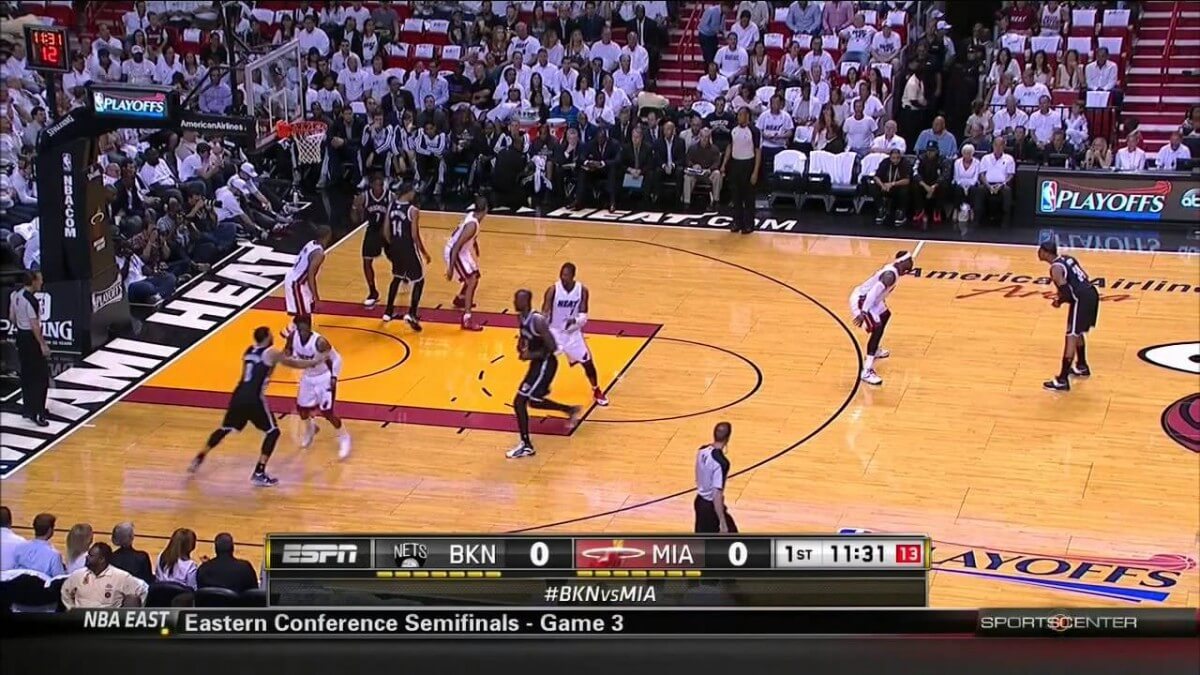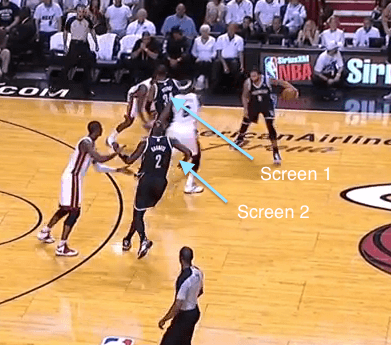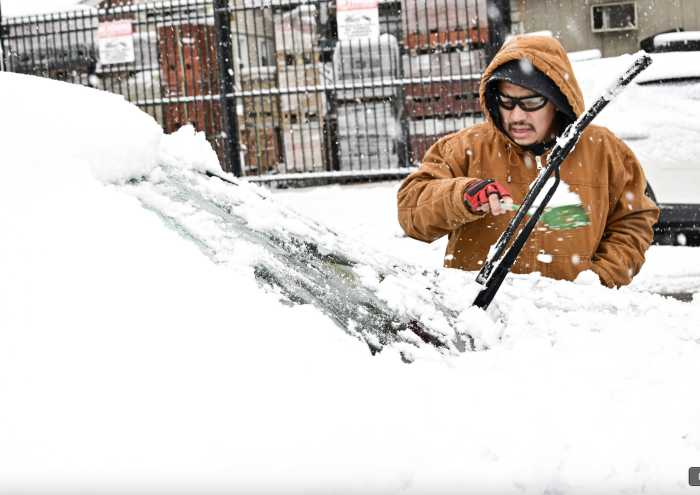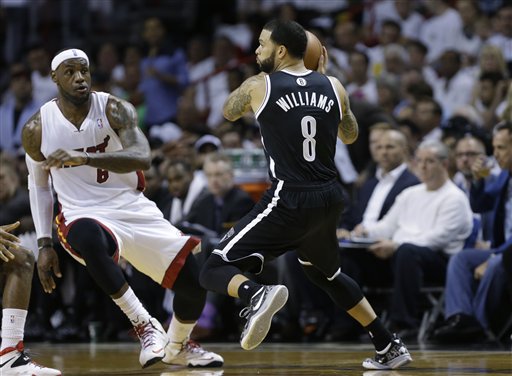
On Thursday night, Brooklyn Nets point guard Deron Williams couldn’t handle the Miami Heat’s defensive pressure. Williams had one of his worst games ever: he went scoreless in 37 minutes, marking the first time in his career he’s ever been held scoreless in 60 playoff games.
The Heat and the Nets play similar styles of defense: each team uses their small-ball, long-ball lineups to force turnovers in pick-and-roll situations by trapping or blitzing the ballhandler, forcing opponents to make quick decisions.
So what exactly went wrong? A combination of poor reactions and decisions to Miami’s pressure along with a few shots and drives that couldn’t find the net. Let’s take a look at a few plays that stood out in particular.
During the playoffs, both the Raptors and Heat have contained Williams in pick-and-roll situations. Williams has hit a swarm of defenders coming off screens, with traps and hard hedges to force the ball out of Williams’ hands.
On the Nets’ first possession Thursday night, Williams comes off a pin-down screen from Kevin Garnett. As Williams catches the pass, Chris Bosh (defending Garnett) and Mario Chalmers (defending Williams) trap Williams in order to force the ball out of his hands.
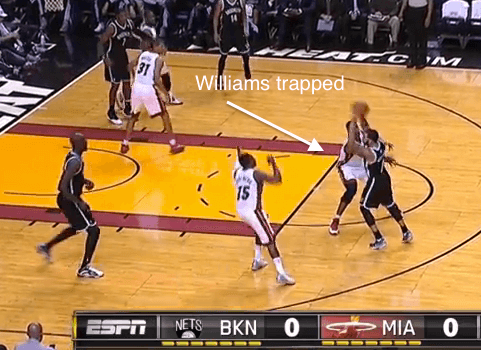
Take a look:
Miami’s aggression won’t relent. They ranked first in the NBA this season in opponent turnovers percentage (Brooklyn ranked #2). If Williams and the Nets can’t find a way to make the Heat pay for their aggressive style, it will be difficult for them to sustain any type of success in this series.
Another play that the Nets have run often this season is a double-high drag screen. It’s simple: Williams brings the ball upcourt to one side of the floor early in the shot clock, two Nets players position about 10 feet apart at the top of the key, and Williams readies to use both as screeners.
Here’s the play in real time:
Unfortunately for the Nets, the Heat know exactly what’s coming, and copy the same successful strategy that Toronto had used to defend this action just a few days ago.
As Williams readies to make his move and use the two screens, his defender (Chalmers) fights over both screens while James and Bosh hedge hard to ensure that Williams doesn’t turn the corner.
Since the Heat have scouted this play well, Chris Bosh comes up to hedge before Williams even uses the second screen:
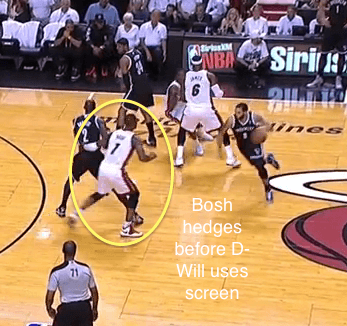
Unable to recognize Bosh’s premature hedge, Williams uses Garnett’s screen anyway. As a result, the Nets get nothing out of the play as the Heat are able to recover and make the stop.
Williams has to improve his decision-making in these situations. If Bosh cheats and hedges early, Williams must “split” the screens to attack the hoop, forcing either Shane Battier (guarding Joe Johnson in the corner) or Dwyane Wade (guarding Shaun Livingston on the wing) to commit to stopping Williams, creating a three-on-two advantage for Brooklyn:
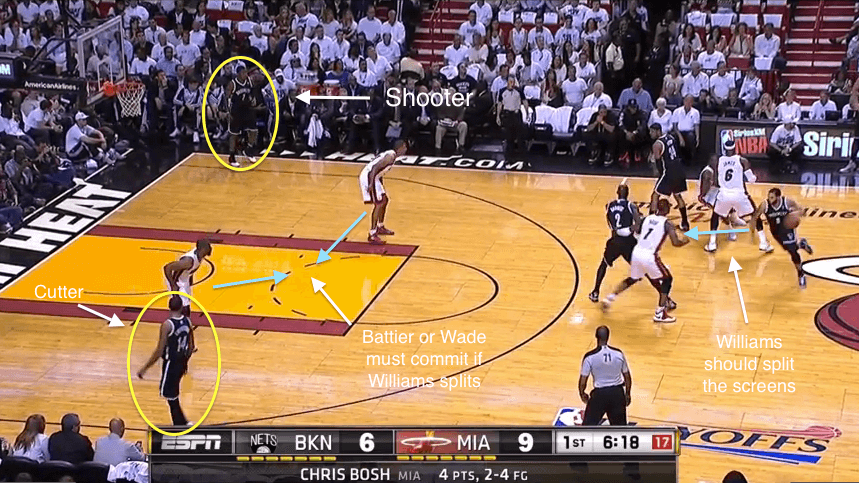
As the playoffs roll on and teams lock in on scouting reports, it’s important for Williams to keep defenses guessing and make better, quicker decisions. If the Nets want to have a chance in this series, it’s imperative that they start making Miami pay for their aggressive style of defense.
Without Williams making plays and thriving off of the Heat’s aggression, too much onus is put on Joe Johnson and Paul Pierce to carry the offensive load. Perhaps a home court advantage will change things, but the Nets haven’t cracked Miami’s code just yet.

